UK General Election Special
Who is the Least Worst Option?
Read this and then decide
To aid our UK-based readers in making their minds up for their vote on June 8 we have picked the bones out of the manifestos of the main political parties and hurled them to Odin – our forthright commentator on naval and defence matters, who famously suffers no fools gladly. Having gnawed hard on them, Odin doesn’t hold back with withering analysis.
Conservatives
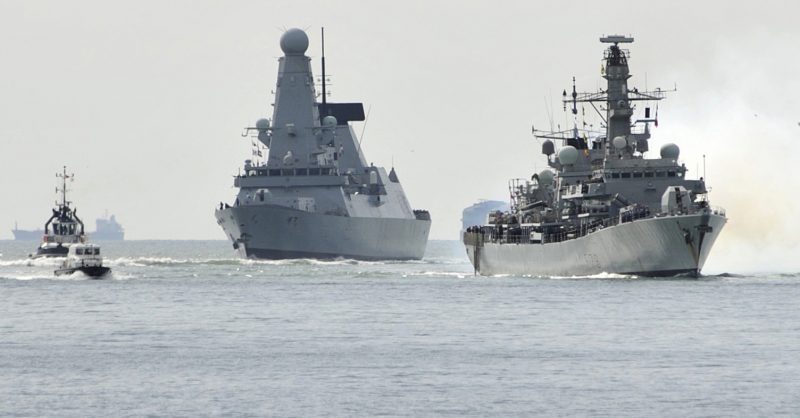
The Tory manifesto describes the UK as ‘a global power’ with ‘ responsibility to sustain our [the UK’s] fine armed forces so that they can defend the realm, our overseas territories and our interests around the globe.’ To demonstrate that commitment the Conservatives describe NATO as a cornerstone of national defence and security. They also explain they are determined to maintain the Trident Continuous at-sea Deterrent (CASD) and also the UK’s ability to deploy ‘a joint expeditionary force.’
They point out the UK has the second biggest defence budget in NATO and the largest in Europe. The manifesto adds: ‘We will continue to meet the NATO commitment to spend at least 2 per cent of GDP on defence and we will increase the defence budget by at least 0.5 per cent above inflation in every year of the new parliament.’
When it comes to the Navy specifically, the Tories boast: ‘For the first time in a generation the Royal Navy is growing. We have cut steel on the first of a new fleet of four Dreadnought ballistic missile boats and we will complete the Astute Class of hunter-killer submarines. Our two new aircraft carriers will project British military power for the next fifty years: HMS Queen Elizabeth begins sea trials in the summer and HMS Prince of Wales is due to enter active service in 2020. Alongside our new Type 45 destroyers, we will build eight Type 26 anti-submarine frigates and develop our programme for a new class of lighter, general-purpose frigates so that by the 2030s we can further increase the size of our fleet. We shall also deliver five Offshore Patrol Vessels.’ Furthermore, the Tories promise: ‘The Royal Air Force will receive, with the Fleet Air Arm, the Lightning II strike fighter, as well as new Maritime Patrol Aircraft.’
Odin’s Analysis:
The Conservatives talk the talk, but their defence policies have not walked the walk. Boasting about being the biggest defence spender in Europe really is a case of telling everyone you are the least weak in a gang of weaklings. As for the so-called boost to defence spending above inflation, that will struggle to keep up with rising costs for equipment, partly caused by the UK buying US-origin kit with a weaker pound.
The RN is only so small because the Tories instituted disastrous cuts in 2010 and the claims of the Navy getting bigger are nothing but spin. Some ships are bigger – the new destroyers and aircraft carriers – but the Royal Navy is overall too small, with new ships taking too long to produce and costing too much.
Thanks to the so-called Strategic Defence and Security Review (SDSR) 2010, the RN lost valuable ships and people and the UK discarded whole maritime capabilities. The weak defence review of 2015 did not remedy a poor state of affairs. The reality is that Britain now spends less than the NATO two per cent minimum on front line military capabilities. There are now not enough men and women to fully man two Landing Platform Docks (LPDs) – with one always in mothballs – while people are also being sucked into the carrier programme to get those two ships to sea (at the expense of several other parts of the fleet). The RN is so desperate for skilled people it is trying to tempt sailors and marines well past military retirement age back into service. It is no secret that it has been borrowing engineers for its frigates from foreign navies.
The Royal Fleet Auxiliary (RFA) has shrunk alarmingly and the UK’s sole forward depot ship and battle damage repair vessel was taken out of service with no replacement. That is a major error for any serious fighting force. The RN’s only helicopter carrier is also being decommissioned without a like-for-like replacement, requiring one of the two new carriers to perform a role for which it is not best suited.
There are fewer submarines on patrol, the Daring Class destroyers have chronic propulsion problems that see them confined to harbour. The future frigate (Type 26) order has actually been cut by five vessels, while there’s not much confidence the Type 31 will even get off the drawing board.
The dangerous situation of the fixed-wing FAA squadrons being reliant on RAF-owned aircraft again puts the carrier strike capability at the mercy of another Service. The RAF also has what many regard as too much influence on maritime air operations which are best conducted by the Navy. The RAF’s focus will always be what is best for it and that is land-based air operations that it totally controls. It will only go to sea when it is compelled to for political reasons, to safeguard its perceived control of UK air power. The new Maritime Patrol Aircraft are likewise flown by the RAF and are being bought from the USA, with the declining pound making them very expensive and the order will possibly be reduced.
The talk of global presence and expeditionary forces is not necessarily borne out by the facts, with the Royal Navy now absent from even some key NATO standing naval forces it used to lead. As ever the RN tries its best but the Tories cannot claim to have served it well in reality.
Labour
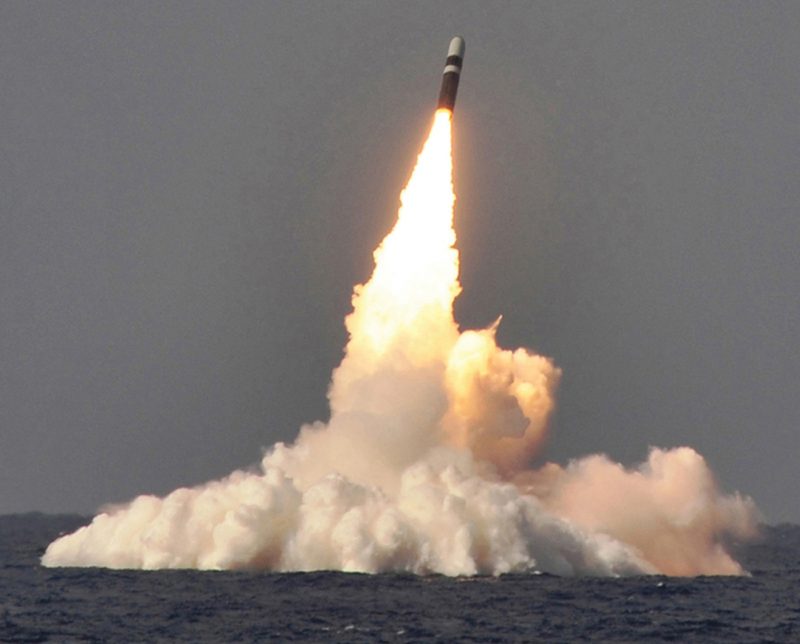
Following the custom of previous UK governments, Labour will initiate an immediate defence review on taking office. Its manifesto commits the UK to NATO and also working with EU partners and points out: ‘The last Labour government consistently spent above the NATO benchmark of 2 per cent of GDP. Conservative spending cuts have put Britain’s security at risk, shrinking the army to its smallest size since the Napoleonic wars. The scrapping of Nimrod, HMS Ark Royal and the Harrier jump-jets have weakened our defences and cost British taxpayers millions. Labour’s commitment to spending at least 2 per cent of GDP on defence will guarantee that our Armed Forces have the necessary capabilities to and ensure our conventional forces are versatile and able to deploy in a range of roles.’
Labour leader Jeremy Corbyn’s life-long opposition to military interventions overseas is well known, even when they are in defence of British territory and people (such as the Falklands operation of 1982, which he virulently opposed). His strong opposition to ever pressing the nuclear red button is likewise not news. Yet Labour’s manifesto vows: ‘Labour supports the renewal of the Trident nuclear deterrent.’ It also points out: ‘As a nuclear-armed power, our country obligations under the Nuclear Non-Proliferation Treaty. Labour will lead partners and the UN to create a nuclear-free world.’
Labour promises to use British steel for British conventional weaponry, presumably including warships and submarines. The manifesto states: ‘Labour will publish a Defence Industrial Strategy White Paper, including a National Shipbuilding Strategy to secure a long-term future for the industry…’ Labour also says it will do something about the ‘exodus’ of highly trained personnel from the UK Armed Forces.
Odin’s Analysis:
We have been here before with Labour – they invariably promise much but, in the end, fall way short. It will happen again should they secure power. While it is true the Con-Dem coalition did great harm, the rot set in under Labour (which of course the hard left Corbyn can disown as not his doing but rather that of centre-left PM Tony Blair).
The new aircraft carriers have only taken so long to get into service because Chancellor Gordon Brown delayed funding, while Blair committed the UK to land wars expensive in both blood and treasure that sucked the life out the Navy in particular.
The idea that Labour consistently spent more on Defence than the Tories – one aspect of the Blair years Corbyn seems happy to appropriate – is a bit of a mirage. The wars in Iraq and Afghanistan did require spending above two per cent, but that money was not devoted to new equipment but rather soaked up by operational requirements in the theatres of war.
The Navy was denied investment. For example, the original plan under Labour was to construct 12 new Type 45 destroyers, but with money drawn away to fight the land wars, savings were made that the saw the T45 order fall to half that. This in effect doubled the cost, as the logic is the more ships you build the cheaper they get. Instead the costs of the entire programme were loaded onto half the ships. Various costs could also be kicked down the road to allow funding of Blair’s wars.
As its cuts continued to hollow out the Royal Navy, Labour also failed to deliver on new capabilities – such as Co-operative Engagement Capability (CEC), which would have enabled fewer ships to be more effective. In essence Labour cut both frigates and destroyers of all kinds, promising that those left would be just as effective and then cancelled investment in the very capability that would have enabled it all to work. End result: Reduced capability and naval global presence.
The Type 45s are also lacking in certain capabilities, such as Ballistic Missile Defence (BMD) and land-attack missiles because Navy chiefs were not given the money for them. New Labour promised a proper Defence Industrial Strategy while in office, too, claiming it would finally deliver more warships, cheaper and faster, but the DIS never properly got underway.
As if all this is not enough to undermine faith in Labour’s promises, its lack of clarity over Trident today means that, in effect, there will be no nuclear deterrent even if the new submarines are built and maintained in service to provide jobs.
Prime Minister Corbyn will never order a nuclear strike, so he has neutered it and, ironically, made the likelihood that somebody might chance a nuclear attack on the UK more likely (as potential foes know they have nothing to fear). Vladimir Putin, for one, will be delighted to see Corbyn in power as he presses on with his own nation’s massive upgrade of Russian nuclear strike capabilities.
Scottish National Party
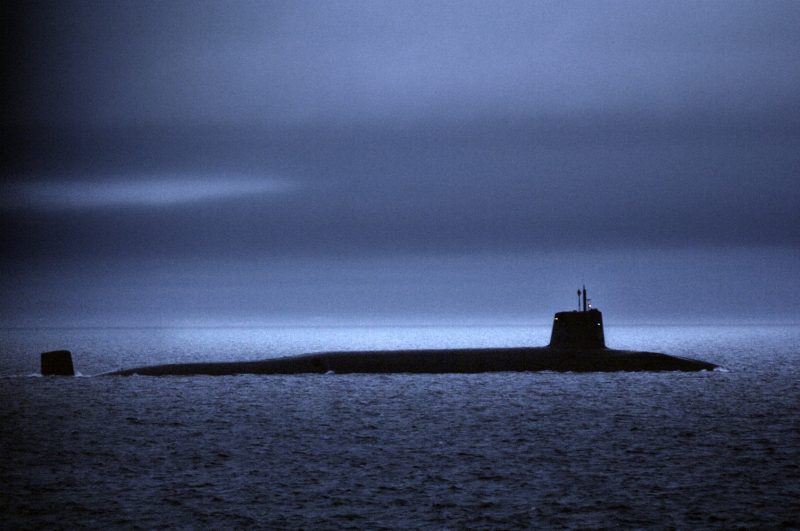
The SNP criticises the ‘Tory government’ in London over running down the ‘defence estate in Scotland while committing billions to a new generation of Trident nuclear weapons.’ Its manifesto adds: ‘SNP MPs will oppose the erosion of the defence estate in Scotland. We will stand up for Scottish bases, regiments and our veterans. We will press for investment in conventional defence. And we will oppose the immoral and expensive Trident nuclear weapons system at every opportunity.’
The SNP’s representatives in Westminster will seek to form alliances with other MPs to ‘scrap Trident as quickly and safely as possible’. In the meantime the SNP will ‘press the UK government to meet their international obligations with regard to multilateral nuclear disarmament.’ The manifesto says: ‘SNP MPs will support long-term investment in HMNB [HM Naval Base] Faslane as a conventional military base’. The SNP insists it will ‘hold the UK government to its promise on building the new Type-26 Frigates in Scotland’.
The manifesto adds: ‘SNP MPs will support a new Strategic Defence and Security Review, in order to assess the need, as a matter of priority, for permanent basing of ocean-going conventional patrol vessels in Scotland. We will press to ensure that the nine multi-role Maritime Patrol Aircraft on order reach full operational capacity at the earliest possible stage, and support a review into the need for additional aircraft.’ The SNP is also pressing for publication of ‘the long overdue National Shipbuilding Strategy (NSS)’ and points out ‘the Royal Navy’s fleet is being depleted because of a “vicious cycle” of poor planning and cost overruns that is wasting taxpayer money and undermining the viability of the shipbuilding industry.’
The SNP wants future defence programmes to offer ‘greater transparency in UK defence spending with a full breakdown of spending by nation and region in the UK, including all procurement and small and medium sized enterprise (SME) expenditure and a full breakdown of component costs of all major projects by location.’
In terms of foreign policy the SNP seems most concerned about Yemen, Syria and the establishment of two-state solution to safeguard peace between Israel and Palestine. Its manifesto makes no mention of maintaining involvement in NATO or commitments to expeditionary operations.
Odin’s Analysis:
The SNP is obsessed with preserving the defences estate on the one hand and determined to get rid of nuclear weapons on the other. This sees it fighting to preserve a Ministry of Defence footprint in some places, yet pushing to get rid of the UK’s ballistic missile submarines. By removing submarines, the SNP will eradicate the primary rationale for HMNB Clyde’s existence.
The SNP is keen on a UK-wide alliance of MPs to abolish Trident, while at the same time straining every muscle to break up the UK and cause irreparable harm to the national defence. The SNP offers no suggestion of what tens of thousands of highly-skilled workers engaged in supporting Trident would do for a living – in both Scotland and England – after it has been scrapped.
Seeking to get rid of Trident is a position the SNP has pursued for years, but not having a proper plan for what would replace it (either in strategic defence, employment or industrial skills base terms) is reckless.
The SNP’s determination to ensure the Type 26 frigates are built in Scotland is another example of blatant self-interest. The SNP doesn’t of course mention that it was the Tory government that presided over the deliberate decline of English warship construction, so it could push work Scotland’s way at the expense of England. There is now no major warship construction capability in England, though minor war vessels can still be built in Devon (though, so far, for the Irish Navy rather than the UK’s fleet).
Both Labour and Conservative govts in Westminster have also wound down the Devonport submarine operating base in England to benefit Scotland. The Astutes were meant to be based in Devonport, but falling force levels and defence funding cuts, along with Labour’s desperation to buy votes in Scotland, saw them switched to the Clyde . It is the height of arrogance for the SNP to scrap the Trident submarines and then insist HMNB Clyde continues as a conventional base when there are now hardly any surface warships left to sustain Portsmouth and Plymouth.
The Scots government has long been concerned about the lack of patrol ships based in Scotland, yet frigates, destroyers and patrol vessels are frequent visitors to Scottish waters and operate from HMNB Clyde. Arguably, Scottish waters are no less or more defended than those elsewhere around the UK.
The NSS has been published, but its recommendations are not binding on the Government, which (should the Tories stay in power) looks likely to reject most of them. The SNP is right to be concerned about that area. However, its call for ‘great transparency’ on defence projects is a bid for Scotland to grab an even greater share of the defence spending pie than it already has as the only place British warships (both large and small) are built.
Liberal Democrats
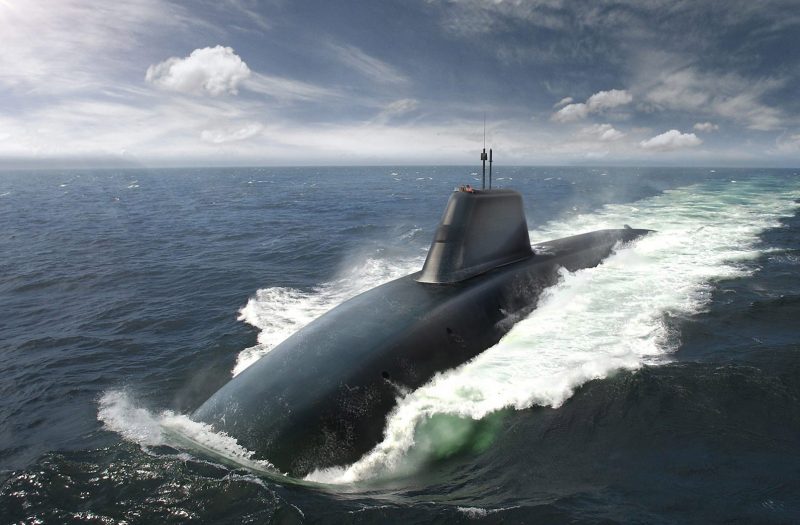
In their manifesto the Lib Dems state: ‘The UK must be able to defend itself and the territories for which it has responsibility, support its neighbours and allies, and engage in humanitarian intervention. The security challenges the UK faces are shared by our partners and allies in the EU and NATO and the UK is more effective and more resilient when we work closely with those partners.’
The manifesto commits any Lib Dem government to devoting the NATO minimum of two per cent of GDP to Defence. It further vows the Lib Dems will ‘Strengthen our [UK] armed services and address critical skills shortages by recruiting STEM [Science, Technology, Engineering and Maths] graduates to be armed forces engineers, providing “golden handshakes” of up to £10,000.’
The Lib Dems also say they will maintain the nuclear deterrent. Their manifesto states: ‘We propose continuing with the Dreadnought programme, the submarine-based replacement for Vanguard, but procuring three boats instead of four and moving to a medium-readiness responsive posture. This would mean replacing continuous at-sea deterrence – instead maintaining the deterrent through measures such as unpredictable and irregular patrolling patterns.’
The Lib Dems promise to carry on with the UK’s existing defence partnerships and their manifesto point out that they ‘recognise the vital role the UK’s armed forces play in the defence of the nation’.
Odin’s Analysis:
The Lib Dem stance on the deterrent is a complete nonsense and they may as well suggest scrapping it.
When in government (and supplying the Armed Forces Minister in the Cameron-led coalition) the Lib Dems pushed the three-boat solution, ignoring the fact that it would guarantee holes in the CASD.
They also advocated the use of cruise missiles instead of ballistic missiles. In that way they, in effect, proposed reducing the arc of ocean the submarines could hide in while raising their potential exposure to elimination (by forcing them close to an enemy shore to launch missiles). Using nuclear-tipped cruise missiles also raises the risk they can be shot down on their way to target and even crash on the territory of friendly nations.
The Lib Dem manifesto does not mention cruise missiles but sidesteps the CASD holes problem created by its three-boat solution. Instead the Lib Dems offer the farce of ballistic missile submarines staying in port where their hulls, systems and crews would degrade while being on view to satellite and other intelligence gathering technology of any potential foe.
The submarines would also face a considerable voyage to their patrol areas, so would not be instantly and invisibly ready to fire when any emergency arose. A part-time deterrent that occasionally has a foray to sea would be completely ineffective, no matter how ‘unpredictable and irregular’. No navy in the world that operates ballistic missile submarines discards the main virtues of a CASD in such a bizarre fashion. It is simply illogical and vulnerable to pre-emptive attack.
The Lib Dems do highlight that there need to be more engineers, but offer no solid future plans for conventional forces, other than admitting they can be quite useful in defending the nation. Talk about pointing out the blinkin’ obvious.
UK Independence Party
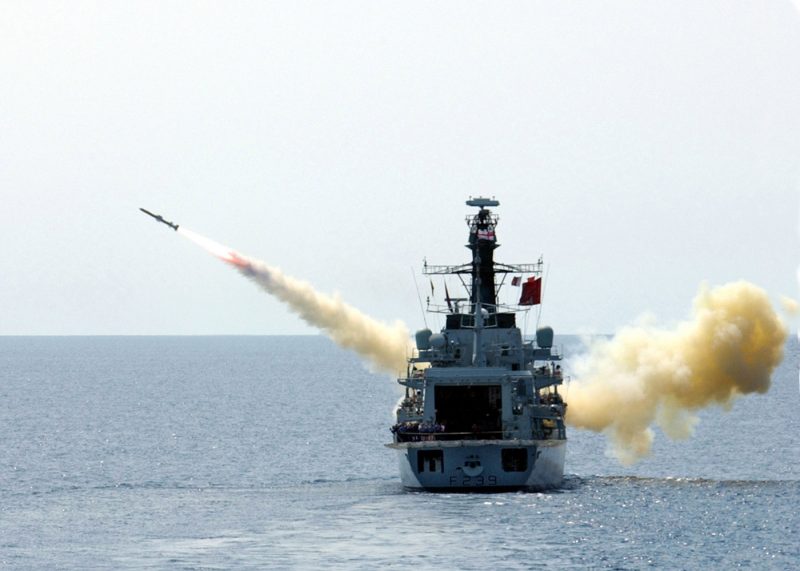
UKIP’s manifesto points out: ‘Despite the ever-present threat to our safety, our Armed Forces have been cut to the bone.’ UKIP promises to ‘spend a genuine two per cent of GDP on defence’. In the best joke on defence contained in any 2017 manifesto UKIP states: ‘US President Theodore Roosevelt said the key to success in foreign policy was to “speak softly but carry a big stick.” In the modern era, British politicians have all too often shouted loudly while carrying a matchstick.’
UKIP also point out in their manifesto: ‘In 2010, the new Conservative-led government began including the Single Intelligence Account, Armed Forces pensions and Trident in the defence budget, rather than accounting for them separately. This sleight of hand budgeting allowed them to claim they were still meeting our NATO obligation to spend two per cent of GDP on defence, when in fact our armed forces were being steadily depleted. Tory cuts to the equipment programme and manpower have been deep: they have put our national security at serious risk.’
Citing deep cuts in the Army and the RAF, the UKIP manifesto suggests the Royal Navy is now ‘a shadow of its former self.’ It adds: ‘ The surface fleet is currently down to just 17 frigates and destroyers. The Navy’s Harpoon missiles will retire from the fleet’s frigates and destroyers in 2018 without a replacement, and there will be a two-year gap without helicopter launched anti-shipping missiles. The Royal Navy has shed people faster than ships: we had 39,000 sailors in 2000; now they number only 29,000.’
The UKIP manifesto states: ‘The Tories have threatened our security by leaving huge holes in our national defences. They have failed the British people, who must remain well protected in an increasingly dangerous world, and those who put their lives on the line for us, who must be properly equipped.’ UKIP promises to clamp down on waste in defence procurement and concludes that the current state of affairs ‘has failed to deliver value for money for taxpayers and has left service personnel at risk.’
Odin’s Analysis:
The UKIP take on defence is clearly informed by people who have insight into front line realities. However, UKIP are never going to be able to implement any of these policies or exert any real influence as they have no MPs and are not likely to get any.
Surprisingly, UKIP does not promise to spend the three per cent of GDP on defence, which many increasingly see as the required minimum level. UK Armed Forces have lost too much critical mass and are seriously weakened, but UKIP’s ‘matchstick’ is a little over-cooked.
The Green Party
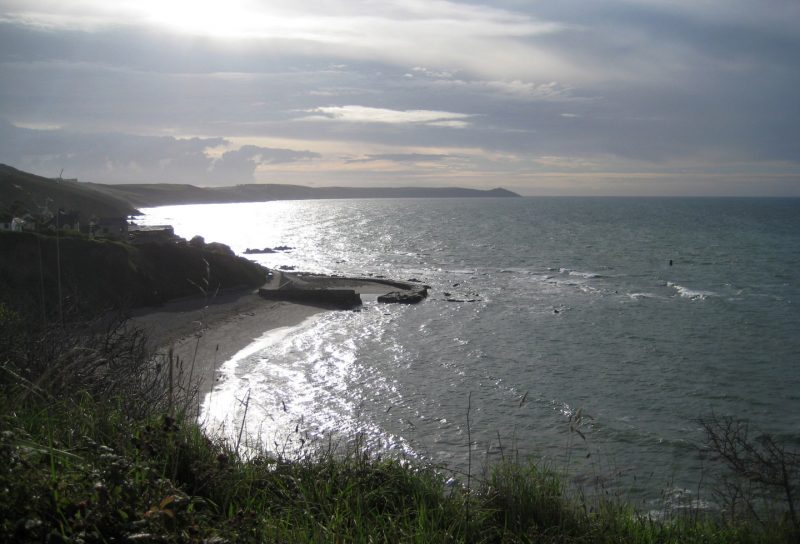

The Greens issued what they called the ‘Green Guarantee’, rather than a manifesto. Under the sub-header ‘A safer world’ they promise to ‘work for a caring and confident Britain that uses its influence wisely, to build peace and protect the environment, and to offer sanctuary to those at risk’.
The Greens also vow to ‘co-operate with our neighbours on the shared challenges that face us all from tackling terrorism and preventing climate change, to reducing inequality. We would work towards an outward-facing Britain that has the confidence and resilience to welcome others.’
The only solid Defence policy offered is to axe the nuclear deterrent: ‘Cancel Trident replacement, saving at least £110 billion over the next 30 years.’ Furthermore the Greens would introduce their variant of ‘an ethical foreign policy’ that would aim to build ‘capacity for conflict resolution, and end support to aggressive wars of intervention.’ They would also raise the aid budget from 0.7 per cent to one per cent of GDP.
Odin’s Analysis:
The Greens don’t really believe in defence as we would know it. They offer the sort of lofty ideals many of us would aspire to but which, in the real world crash and burn on hitting cold hard reality. Defence and diplomacy is a dirty business and the Greens are just too nice to handle it.
Like the SNP they appear to have no plan for how they would help communities in the UK survive the impact of Trident being axed. Like UKIP the Green Party is not likely to gain any significant power and will have few MPs. It can therefore afford to be as vague as it likes because it will never be tasked with implementing any policies on anything, especially Defence (which it clearly regards as unnecessary).

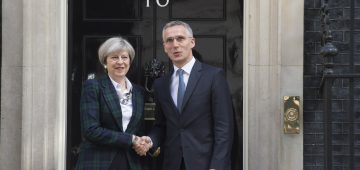



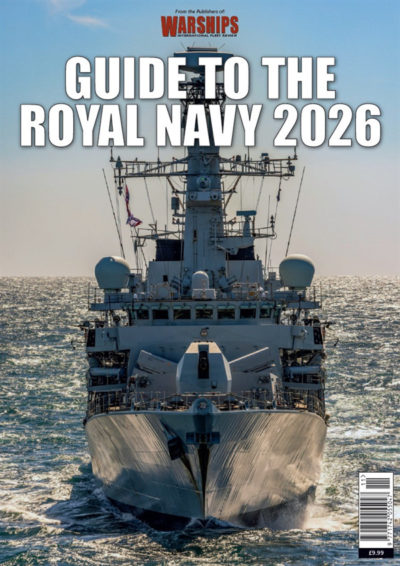
Comments
Sorry, comments are closed for this item